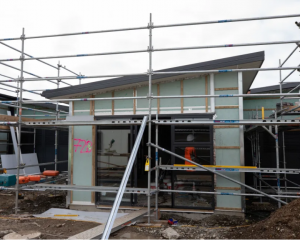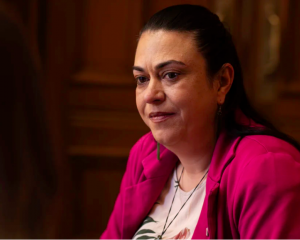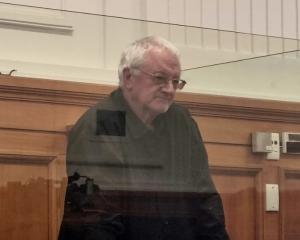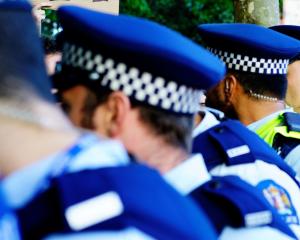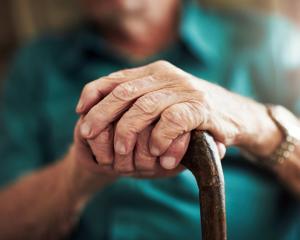Emergency departments across New Zealand, including at Dunedin Hospital, are steering patients away with vouchers for private clinics.
New figures have revealed about 30 people are month are steered away Dunedin Hospital ED.
One in 10 people are steered away from Auckland hospital emergency departments with a voucher for a nearby private clinic.
Waitemata DHB has given away thousands of vouchers to people presenting at the emergency department, entitling them to free treatment at a nearby private clinic.
Patients can decline a voucher and get treatment at the ED.
The cost last year averaged almost $100 a voucher.
In opposition now Health Minister David Clark slammed voucher systems as "paying people to go away", and a "perverse, band-aid approach" reflecting underfunding.

The monthly average last year was fewer than 600 vouchers, and in 2016 it was only about 100.
Waitemata DHB spent about $1.3m on the scheme between 2017 and the end of August, and has contracts with White Cross on Lincoln Rd and Shorecare Urgent Care Smales Farm.
Walk-in prices at the latter range from $92 to $115, depending on time of day.
The DHB wouldn't reveal exact 2018 costs, citing commercial sensitivity. But the average per voucher cost is now about $75.
"Our contracts are negotiated regularly to ensure they represent good value and we are comfortable the current arrangements achieve this," the DHB's director of hospital services Cath Cronin said.
More than 40 patients given a voucher have later been admitted to hospital, but the DHB says it has no record of "any adverse outcomes" as a result.
Cronin said the data didn't show whether the admission was related to the ED presentation, and the small numbers "shows the clinical effectiveness and appropriateness of the scheme".
Vouchers started as a trial but are now standard practice.
"The voucher system allows us to triage less-urgent patients to a local urgent care clinic so the expertise and time of the ED clinical team can remain focused on the sickest patients," Cronin said.
"The programme has been incredibly successful."
At Southern DHB about 30 people a month are given a $40 voucher for the GP after turning up at Dunedin Hospital ED.
Auckland DHB has trialled a voucher system in the past but abandoned it, with a major reason being there was no private A&E close to Auckland City Hospital.
Other DHBs including Bay of Plenty, Hawke's Bay and Hutt Valley use vouchers in exceptional circumstances, such as during the recent nurses strike.
Waitemata DHB's voucher use comes amid an ongoing campaign by the Waipareira Trust.
For the past five winters the organisation has put up billboards urging people to get free treatment at Waitakere Hospital ED, instead of paying hefty after-hours costs at White Cross.
The billboards carry the Waitemata DHB logo, as have newspaper adverts. That's created tension with the health board, documents released under the Official Information Act show.
The DHB's director of communications contacted the trust in June, asking, "can you please clarify why [the logo] has been used and whether any approvals were given?"
Te Whānau O Waipareira chief executive John Tamihere responded.
"The Waitakere Hospital A&E is publicly funded and ultimately responsible for the health of all West Aucklanders. We do not want any acknowledgement in terms of promoting your DHB to such a worthy cause."
Tamihere told the Herald the campaign started after disturbing reports from the trust's more than 200 workers in the community about people working two or three jobs, such as stacking supermarket shelves in the evenings.
"When they're getting ill, they don't [get treatment]. They just batten down if they can. If that illness flares to the next stage, straight away their casual labour and income drops.
"We had to take a very assertive approach to say, 'No, for the benefit of your children and yourselves, just get it sorted.'"
Tamihere said the costings showed the voucher scheme wasn't efficient. The private clinics would receive other co-payments and it would be more efficient to improve services at public hospitals.
"The voucher system is just another rort."
However, Clark said some people turned up at emergency departments with issues more appropriately handled in a primary care setting.
The vouchers are given for specific conditions including bruising, sprains, minor wounds colds and other needs like repeat prescriptions and medical certificates.
"If they decline the voucher offer they will be seen at the ED - it's their choice.
"The Ministry of Health has confirmed that 50 per cent of North Shore patients and 15 per cent of West Auckland patients elect to take the voucher. This reduces demand on the emergency departments and allows clinicians to focus on those patients with the most immediate need."
ED demand
Health boards have tried different approaches to cope with growing numbers turning up at emergency departments.
For three months over winter, a voucher for a free GP visit was given to mostly patients aged 50 and older discharged from Christchurch Hospital and the surgical ward at Burwood Hospital.
"We believe this may be an effective way of encouraging engagement with general practice teams post-discharge and, in doing so, reducing the risk of re-presenting to the emergency department," a Canterbury DHB spokeswoman said.
Counties Manukau has doubled the number of subsidised $39 after-hours visits for low-income residents, to 120,000.
ED vouchers
2018 (January 1 to August 31):
• North Shore Hospital: 5071 vouchers, 10 per cent of presentations, $350,000-$400,000 cost - maximum of $79 per voucher
• Waitakere Hospital: 2976 vouchers, 8 per cent of presentations, $200,000-$250,000 cost - maximum of $84 per voucher
2017
• North Shore Hospital: 5574 vouchers, 8 per cent of presentations, $499,117 cost - $90 per voucher
• Waitakere Hospital: 1481 vouchers, 3 per cent of presentations, $195,170 cost - $132 per voucher
2016
• North Shore Hospital: 1264 vouchers, 1.8 per cent of presentations, $139,963 cost - $111 per voucher
• Waitakere Hospital: 39 vouchers, 0 per cent of presentations, $4056 cost - $104 per voucher
Source: Waitemata DHB. Exact cost for 2018 not provided.





